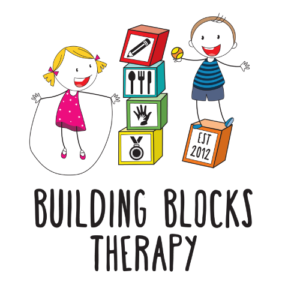In order to best answer this question, it’s important to understand what exactly and Occupational Therapist does when working within a paediatric setting.
Occupational Therapy (OT) is a fascinating career that involves working with the child to help them to grow and reach their full potential, ensuring the family is involved every step of the way. This involves providing kids with a variety of strategies and just right challenges to assist with the development of skills in the following areas:
- Physical – gross motor and fine motor skills
- Self care skills
- Social skills
- Emotional and behavioural self regulation
- Sensory processing skills
- Academic skills
This may be as the result of a diagnosed disability, or as simple as a child not necessarily keeping up with their peers or children around them in terms of development.
So how do you know if your child might benefit from input from an Occupational Therapist?
Whilst no two children are alike, some of the more common signs to look out for which might indicate that your child requires an extra helping hand, include:
Falling behind at school/kinder due to difficulties with:
- Pencil grip
- Letter formation or letter reversals
- Difficulty holding and using scissors correctly
- Difficulties maintaining attention and concentration
Difficulty performing self care tasks:
- Difficulty using cutlery at meal times
- Difficulty dressing themselves i.e. unable to use buttons or zippers or putting on clothes back to front
- Difficulty with tying shoelaces
- Decreased independence with toileting
Sensory regulation difficulties:
- Covering ears when there is noise around
- Overreacting to sensations such as touch, smell, or light
- Extremely fussy eating
Emotional regulation difficulties:
- Crying and becoming overly emotional for no apparent reason
- Excessive meltdowns and tantrums
- Difficulty calming down when a meltdown occurs
Delayed social skills:
- Avoiding eye contact
- Challenges making friends
- Physical or aggressive behaviour towards other children
- Delayed or reduced verbal communication
Delayed motor skills:
- Falling or clumsy behaviour
- Difficulty throwing and catching
- Reduced hand eye coordination
- Avoiding climbing and jumping activities
If you are unsure, there are a number of professionals you can talk to in order to get advice about the need for OT input. This can include discussions with the child’s paediatrician, your GP and your child’s teacher.
A referral is not needed in order to see an OT and the initial assessment is always completed during the first session to ensure that this is the most appropriate service for your child.
If you would like any further information or to arrange an initial assessment for your child, feel free to contact Building Blocks Therapy.
Natalie Revy (Occupational Therapist)
